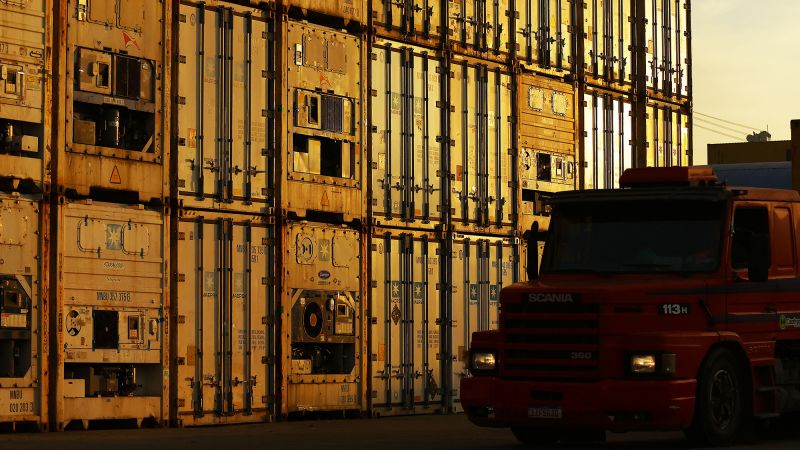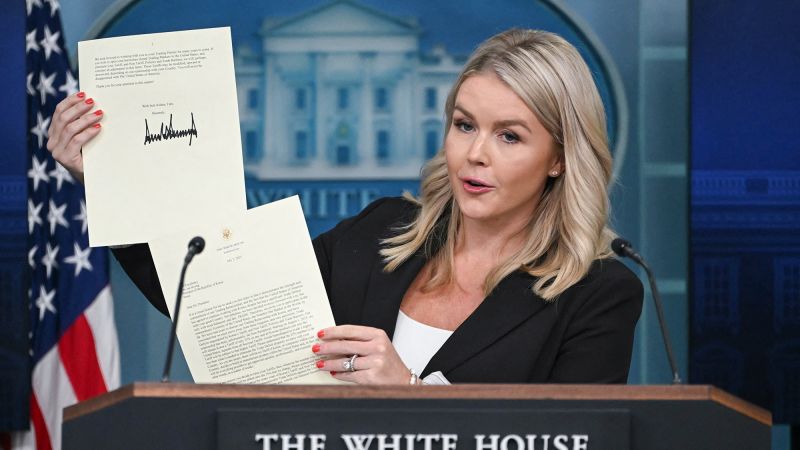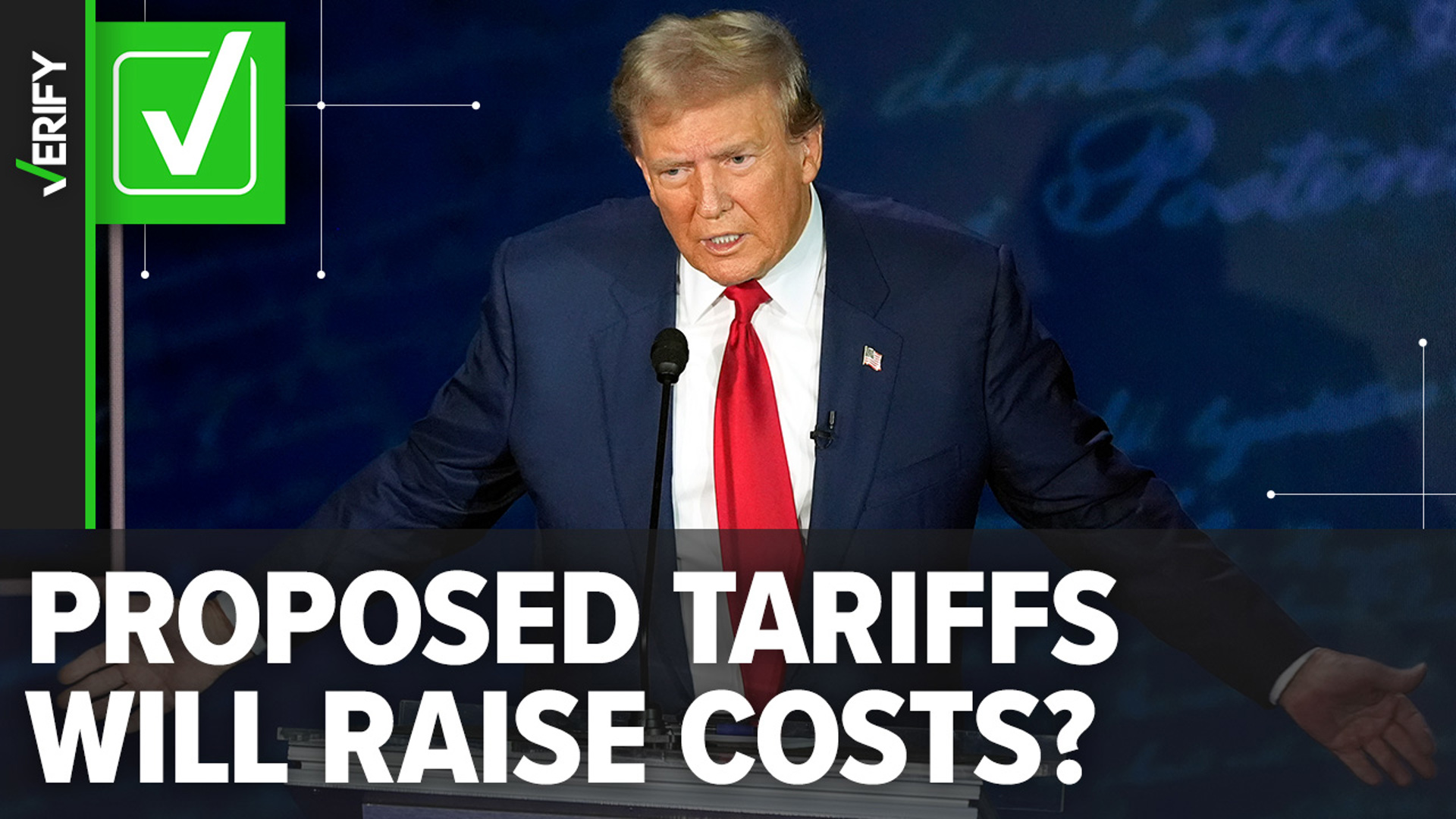US-India Trade War Escalates with Trump's Tariff Increase on Indian Goods

Introduction
In a move that could further strain the already tense relationship between the United States and India, President Donald Trump has announced his plans to increase tariffs on Indian goods. The reason behind this decision is India's recent purchase of Russian oil, which has been met with strong opposition from Washington. This move marks a significant escalation in the trade war between the two countries, as Trump threatens to "substantially" raise duties on Indian imports.
Key Details
This is not the first time that the US has expressed its displeasure over India's purchase of Russian oil. In 2018, the US had imposed sanctions on India for its purchase of the S-400 missile defense system from Russia. This ongoing issue has been a major point of contention in the relationship between the two countries, with the US threatening to impose penalties on India for not adhering to its sanctions against Russia.
The increase in tariffs is also seen as a strategic move by the US to reduce its trade deficit with India, which has been a major concern for the Trump administration. India, on the other hand, has been trying to diversify its energy sources and reduce its dependence on Middle Eastern oil by turning to Russia. This has not gone down well with the US, which views Russia as a competitor in the global energy market.
Impact
The increase in tariffs could have a
About the People Mentioned
Donald Trump
Donald John Trump, born June 14, 1946, in Queens, New York, is an American businessman, media personality, and politician. He graduated from the University of Pennsylvania’s Wharton School in 1968 with a degree in economics. In 1971, he took over his family’s real estate business, renaming it the Trump Organization, through which he expanded into building and managing skyscrapers, hotels, casinos, and golf courses. Trump gained widespread fame as the host of the reality TV show *The Apprentice* from 2004 to 2015, which helped establish his public persona as a successful entrepreneur. Trump entered politics as a Republican and was elected the 45th president of the United States, serving from 2017 to 2021. His presidency was marked by significant policy actions including tax cuts, deregulation, the appointment of three Supreme Court justices, renegotiation of trade agreements (notably replacing NAFTA with the USMCA), and a focus on immigration control including border wall expansion. He withdrew the U.S. from international agreements such as the Paris Climate Accord and the Iran nuclear deal, and engaged in a trade war with China. His administration’s response to the COVID-19 pandemic was criticized for downplaying the virus’s severity. Trump was impeached twice by the House of Representatives—first in 2019 for abuse of power and obstruction, and again in 2021 for incitement of insurrection—but was acquitted by the Senate both times. After losing the 2020 election to Joe Biden, Trump challenged the results, culminating in the January 6, 2021, Capitol riot. He remains a central figure in American politics, having won the 2024 presidential election and returned as the 47th president in 2025, continuing to promote policies aimed at economic growth, border security, and military strength[1][2][3][4].
About the Organizations Mentioned
United States
The **United States** is a federal republic and a global superpower, playing a leading role in economics, military strength, technology, and governance. It is a nation of approximately 348 million people as of 2025, characterized by its diverse population and dynamic economy[8][6]. Founded in 1776 following independence from British rule, the U.S. rapidly evolved into a major world power, especially after World War II, when its technological and economic investments solidified its global dominance[4]. Today, it remains the world’s preeminent military power, with 76% of Americans recognizing this status, while about half view it as the leading economic power globally, though China is seen as a rising competitor[2][3]. The U.S. government operates through a complex system that manages federal finances, taxation, social welfare programs, and trade policies. Recent legislative changes, such as the 2017 Tax Cuts and Jobs Act and the 2025 One Big Beautiful Bill Act, have shaped the tax landscape to influence economic growth, labor markets, and federal revenue[1]. Despite challenges like rising federal deficits projected to reach 6.9% of GDP by 2027, consumer spending remains resilient, and business investment is expected to grow steadily in 2025[5]. In governance, the U.S. is rated "Free" with a score of 84/100 by Freedom House, though concerns about democratic erosion and partisan conflicts persist[6]. Public trust and satisfaction with government services fluctuate, reflecting ongoing debates about policy effectiveness and institutional competence[7]. Technologically, the U.S. maintains a critical edge, underpinning its economic and geopolitical power. Experts warn, however, that technological dominance is not guaranteed indefinitely, emphasizing the need for adaptive policies and international cooperation to sustain leadership in innovation and global affairs[4]. Overall, the United States remains a pivotal force in global business, technology, and politics, balancing historic strengths with contemporary challenges in
India
India, officially the Republic of India, is the world's most populous democracy and the fifth-largest economy with a GDP of approximately $4.2 trillion as of 2025. It is a major global player in business and technology, boasting a robust and diverse economy that grew at about 6.5-7.8% in recent fiscal years, making it the fastest-growing major economy worldwide[1][2][4]. Historically, India has a rich cultural and civilizational heritage dating back over 9,000 years, with early urbanization in the Indus Valley Civilization and the development of significant religious and social systems such as Hinduism, Buddhism, and Jainism. Since gaining independence in 1947, it has evolved into a vibrant democracy with a complex socio-economic structure[3]. Economically, India has transitioned from a primarily agrarian society to a mixed economy with strong service, industrial, and agricultural sectors. The services sector, especially software and business services exports, has been a key driver of economic expansion[1]. Government initiatives like Production-Linked Incentive (PLI) schemes and trade reforms aim to boost manufacturing and exports, targeting $1 trillion in merchandise exports by 2030. Micro, Small, and Medium Enterprises (MSMEs) form a critical component of India's economy, contributing significantly to GDP, employment, and exports, with ongoing efforts to improve their productivity through digital adoption and infrastructure investment[2]. India's current status is marked by a growing middle class, technological innovation hubs (notably in IT and software services), and a strategic push toward green and inclusive development supported by international partnerships such as with the World Bank[1]. The country faces challenges such as income inequality, internet freedom concerns, and political complexities but maintains a favorable global view in many nations due to its economic potential and democratic framework[6][7]. In summary, India represents a dynamic and rapidly evolving organization-state that combines ancient cultural roots with modern economic ambition
Russia
Russia, officially known as the Russian Federation, is not an organization but a sovereign state and the largest country in the world by land area, spanning Eastern Europe and northern Asia. With a population of nearly 144 million as of 2025, Russia ranks ninth globally by population and is characterized by significant ethnic diversity, with over 80% identifying as ethnic Russians and numerous minority groups contributing to its cultural tapestry[4]. The capital, Moscow, is a major global city and the country’s political, economic, and technological hub. ## Historical Overview Russia’s history is marked by its transformation from the Tsarist Empire to the Soviet Union and, after its dissolution in 1991, to the present-day Russian Federation. The post-Soviet era saw Russia’s integration into the global economy, though it retained a centralized political system with power concentrated in the presidency[7]. The country’s economy, historically resource-based, relies heavily on oil, gas, and minerals, but has also developed significant industrial, technological, and military sectors. ## Economic Profile and Key Achievements Russia’s economy is the world’s twelfth-largest consumer market, with about 70% of GDP driven by domestic consumption[1]. It has a “very high” Human Development Index ranking and boasts the fifth-highest number of billionaires globally, though income inequality and regional disparities remain pronounced[1]. Major achievements include surviving extensive Western sanctions after the 2022 invasion of Ukraine, maintaining economic stability through increased military spending, and pivoting energy exports to Asia[1][5]. The country has also played a leading role in the BRICS bloc, advocating for reforms in the international financial system and promoting technological innovation among developing economies[6]. ## Current Status and Challenges As of late 2025, Russia’s economy is experiencing a pronounced slowdown, with GDP growth cooling to around 1% after robust expansion in 2023–2024[2][3]. High military expenditure (
















